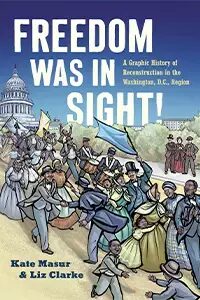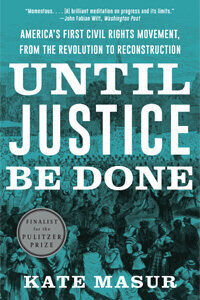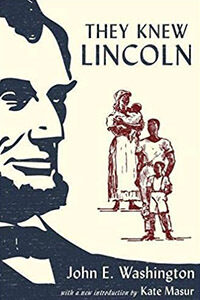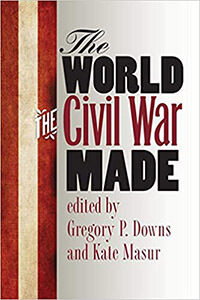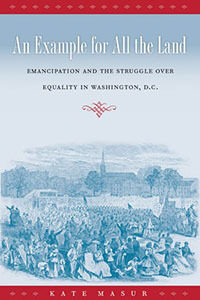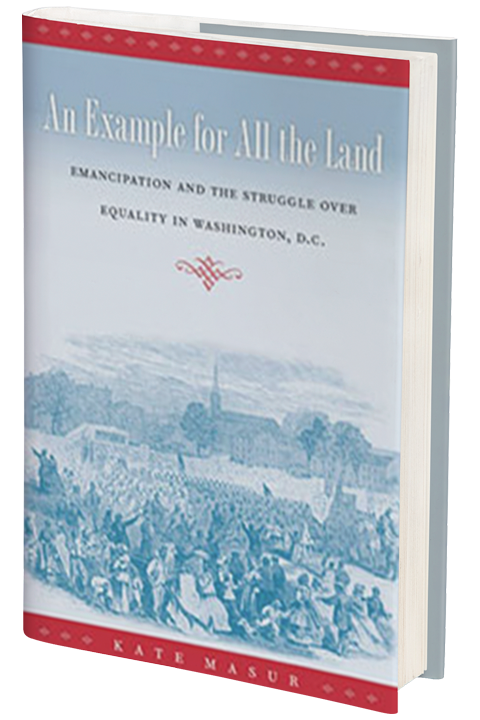“A solid foundation for a comparative assessment of urban-based emancipation politics.… [This book] illuminates how Washington, D.C., provided important precedents for both expansive and limited views of emancipation and the rights of black people.”
— Journal of Southern History
An Example for All the Land
Emancipation and the Struggle over Equality in Washington, D.C.
An Example for All the Land reveals Washington, D.C. as a laboratory for social policy in the era of emancipation and the Civil War. In this panoramic study, Kate Masur provides a nuanced account of African Americans’ grassroots activism, municipal politics, and the U.S. Congress. She tells the provocative story of how black men’s right to vote transformed local affairs, and how, in short order, city reformers made that right virtually meaningless. Bringing the question of equality to the forefront of Reconstruction scholarship, this widely praised study explores how concerns about public and private space, civilization, and dependency informed the period’s debate over rights and citizenship.
Praise for An Example for All the Land
“An example of the type of excellent scholarship that bridges the putative divide between elite decisions and popular struggles, while getting to the heart of thorny questions about equal rights during a tumultuous time our nation’s history.”
“Masur positions her work at the intersection of political and social history… [and] carefully reconstructs the interplay between national and local forces, between the general and the specific.… A compelling work that will serve as a model for similar studies for years to come.”
— Journal of American Ethnic History
“I highly recommend this book because Masur provides us a wonderfully well-documented and fascinating history of [Washington D.C.] with lessons for today….An important book….[and] a rewarding one that will hopefully evoke public debate and inspire new ideas for the future.”
— Susie’s Budget and Policy Corner blog
“In all, Masur sets a new standard in Reconstruction historiography. In a stunning achievement, she has unearthed a lost democratic legacy that was previously unknown – and presented it poignantly and provocatively.”
— Journal of American History
